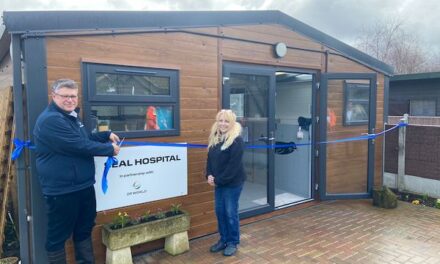Better facilities, and more safe and secure parking for drivers remains a key priority for us. Commercial vehicle drivers are vital to our economy, yet they still face a poor standard of facilities at service stations and truck stops throughout the country, including a severe lack of secure parking.
We have seen significant progress in the recognition of the importance of truck and coach parking in recent years, including an acceptance of the outstanding negative issues and measures to help address them.
Lorry parking utilisation is at crisis levels in key freight corridors and very high in many other areas. Drivers require and deserve secure conditions where they can rest and recuperate. Adequate facilities are vitally important for driver welfare including their physical health, mental health and overall wellbeing.
Seven hundred people in the UK are diagnosed with diabetes each and every day and the sedentary nature of drivers work makes them particularly vulnerable to health issue such as diabetes. With a rise in the number of drivers with diabetes in recent years, there is understandable concern within industry about the poor quality of food choices and the lack of exercise facilities available at many Truck stops nationwide. We continue to work closely with partners such as the Diabetes Safety Organisation to raise awareness of diabetes within our sector.
The poor conditions of roadside facilities and lack of availability of safe and secure commercial vehicle parking have been recognised as key elements of issues around recruitment, retention, and diversity in the driver pool.
Not only are good quality services important to driver health and wellbeing, but so is safety. We have seen a concerning rise in freight crime across England, Scotland, Wales and Northern Ireland. A lack of proper security means valuable loads are a target for organised criminals, affecting the quality of rest drivers can get whilst stopped at these sites. The National Vehicle Crime Intelligence Service (NaVCIS) reported that in 2023, there were 5,373 reports of HGV and cargo crime across the UK, resulting in an estimated cost of the loss in value from thefts alone of £68 million.
It’s important to acknowledge the good work that has already taken place. The Future of Freight strategy and DfT Lorry Parking Survey have recognised and quantified the extent of the problem. The £52.5m match funding first announced in March 2023 is already being used to make significant improvements in England. (The UK Government recently announced matched funding for upgrades to existing truck stops, but that recent funding was not matched in Wales meaning that the gap in quality services is increasing.)
The 12-month Task and Finish Group, of which I am a vice-Chair, is identifying what industry experts can do to tackle the poor quality and quantity of safe secure truck parking spaces in the UK.
We have made progress in improving facilities for drivers, but there is still a long way to go and there is much work ahead. Many of the aspirations set out in the Future of Freight Strategy remain just that. It is important that this General Election does not slow down the pace of reform in this area.
The RHA is calling on the next Government to:
Complete and publish proposed reforms of the planning system, including the National Planning Policy Framework and the Development Consent Order process, codifying the importance of truck parking in the decision-making process, and making it quicker and easier to build new sites.
Commit to the work of the Facilities Task and Finish Group, engaging with them directly on planning reforms and working to find new ways government and industry can collaborate to address these challenges.
Encourage local authorities to include specific references to truck parking in their local plans, including guidance on appropriate sites for new facilities and circumstances where support should be given to applications.
Ensure that nationally significant infrastructure projects and National Highways schemes (including those currently earmarked for RIS3) consider the need, and if necessary, allocate sites for truck parking at the earliest stage.
Maximise the use of government owned sites and grant schemes to stimulate site expansion and facilities upgrades.
Our facilities campaign work continues, and we look forward to working with the next government to highlight these issues and to ensure that improving and securing parking and roadside facilities for drivers is a priority in the next parliament.









